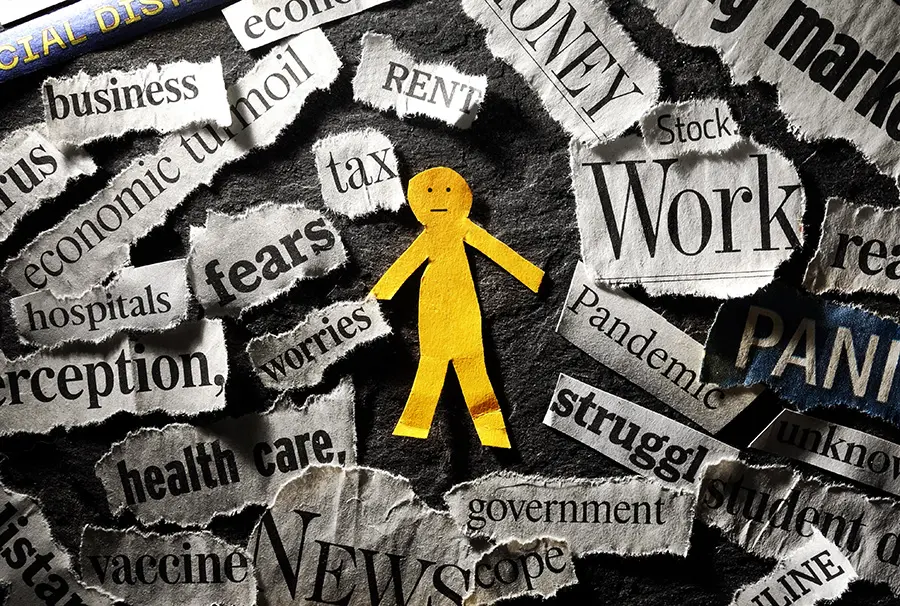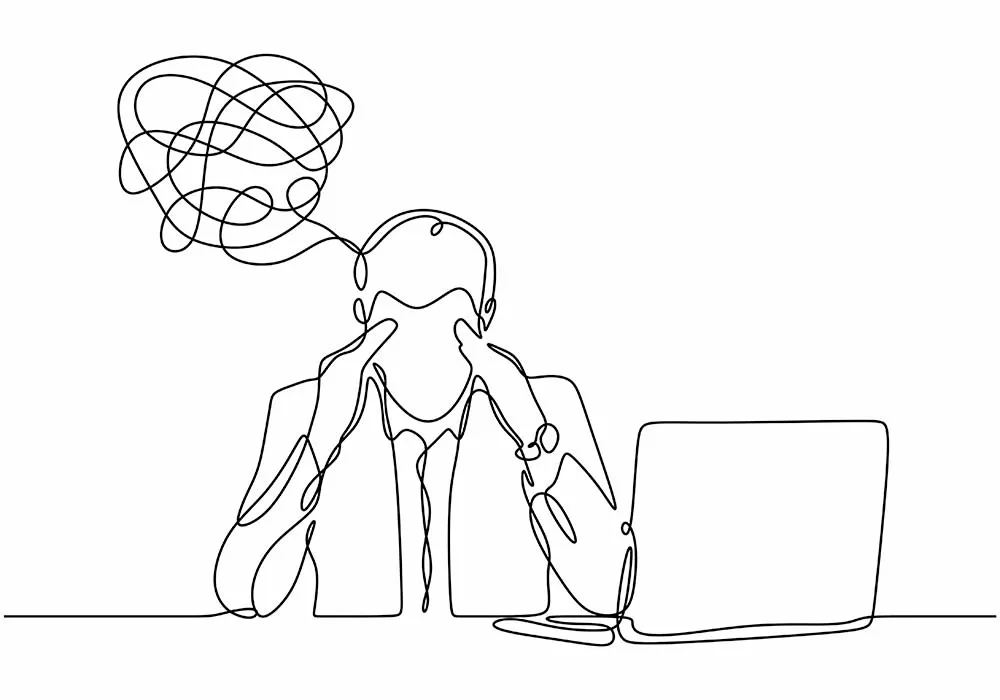As an adult, stress is a regular part of life. However, while everyone experiences stress, everyone reacts to stress differently, and the way you react to stress can have a significant impact on your health. The fact is that, for many people, stress can manifest as physical symptoms throughout the body, such as muscle tension, headaches, stomach pains, and digestive problems. These health problems can be further complicated when stress weakens your immune system, making you more susceptible to illness. Stress can also have a significant impact on your mental health and disrupt your sleep patterns, leaving you feeling irritable, anxious, and even depressed.
When stress becomes chronic and your body remains on alert for an extended period of time, triggering continuous “fight or flight” responses, this can even lead to more serious health issues, including heart disease. Believe it or not, there is a direct connection between stress and heart health, making it essential that you work to control the amount of stress you experience and how you respond to it. To help ensure that you maintain a healthy heart, keep reading to learn more about the connection between stress and heart health as well as things that you can do to reduce your stress levels.
While you are likely familiar with the mental effects of stress, you are not alone if you are surprised to learn that there is a connection between stress and heart disease. However, the fact is that your mental health can have a significant impact on your physical health, which is often referred to as the mind-body connection.
One of the primary ways that stress affects the cardiovascular system is by increasing inflammation in the body. When you’re stressed, stress hormones like cortisol and adrenaline are released, which can elevate your heart rate and blood pressure, lower HDL (good) cholesterol, and increase your risk for heart disease. Stress can also indirectly impact your heart health by increasing the likelihood that you will act in ways that will increase your risk for heart disease. For instance, people who are stressed are less likely to exercise and are more likely to eat junk food. If you have been experiencing a lot of stress lately, it is then essential that you find ways to reduce your stress levels to improve heart health.
To reduce your risk of heart disease, it is important to learn ways to manage stress responses as well as the unhealthy habits that chronic stress can cause. Here is a look at just a few things that you can do to lower stress levels and reduce your risk of developing heart disease.
One of the biggest reasons people become stressed is that they take on too many responsibilities in their personal and professional lives. Reducing the size of your to-do list can then go a long way in alleviating your chronic stress. If you are like many people, you may have a hard time saying no to people; however, this can leave you with more responsibilities in a day than you can actually take care of. Try to make a point of prioritizing yourself by not taking on too much. If there are tasks that you can’t turn down, don’t be afraid to ask friends, family, and coworkers for help if your schedule becomes too intense.
Many people drink caffeine to help make it through a long day. However, too much caffeine could be increasing your stress levels. Caffeine is a stimulant, and it can trigger your body’s stress response. Not only can this added stress increase your risk of heart disease, but consuming too much caffeine can also lead to high blood pressure and irregular heart beat, putting you at greater risk for a heart attack or stroke. This makes it important that you moderate your caffeine intake or switch to decaffeinated beverages.
At the end of a long day, you may enjoy a beer or glass of wine to help you relax; however, this may actually be negatively impacting your mental health. While drinking alcohol may initially relax you and lift your mood, this temporary high can be followed by a big crash, both physically and mentally. Alcohol is a depressant that can lead to a decrease in serotonin levels, which can negatively impact your mental health and increase your risk of stress/anxiety-related heart disease. Additionally, withdrawal symptoms from alcohol can affect quality of sleep, mood and anxiety which can worsen your ability to handle stressors. Thus, to reduce stress an important step is to try to limit your alcohol intake.
Stress and anxiety can negatively impact your mood, reducing your motivation to engage in physical activity. However, this is counterproductive, as not only can exercise reduce your risk of heart disease, but it can actually help alleviate stress and improve your mood and anxiety. Every time you are physically active, your body releases mood-boosting chemicals called endorphins that can reduce stress, helping to improve your overall mental and physical health. It is recommended to participate in some kind of physical exercise at least 3 times per week to help stabilize stress levels.
Getting a good night’s sleep is essential for stress relief as it allows your body and mind to repair themselves after a long day. Unfortunately, stress can disrupt your sleep cycle and make it difficult to get the rest you need. Furthermore, lack of sleep can worsen anxiety, and mood which make stressors more difficult to manage and increase your risk of heart disease.
If you have been struggling to get the recommended seven to nine hours of sleep a night, try to take steps to improve your sleep health. Establishing a regular sleep routine, removing electronic devices from the bedroom, and not drinking caffeine in the evening can all make it easier to get a good night’s sleep. You should also consider talking to a provider if you are having trouble falling or staying asleep at night.
Not only can your diet negatively impact your heart health, but eating a poor diet, particularly one high in processed foods, can also negatively impact your mood and anxiety by increasing the stress hormones in your body. Eating a balanced diet is a key component to improving mental health. Eating a diet filled with fruits, vegetables, whole grains, and lean protein can help you feel more stable and better manage stressors. Try to avoid excess sugar, saturated fat, caffeine, and processed food.
Having safe stress management strategies is an important way to manage your physical and mental wellbeing. Of course, some strategies may work better for you than others. A few quick things that you can do to try to reduce stress include the following:
Finding ways to reduce your stress and regulate stress hormones can go a long way in helping you to maintain good overall physical and mental health. However, don’t feel like you have to deal with stress alone. If you are struggling with chronic stress, a mental health professional can help provide you with strategies to help you manage your stress effectively.
Feel free to contact us to learn more about the connection between stress and heart health as well as to learn how we can help you manage chronic stress.
 Is It Stress or Anxiety? Take the Quiz
Is It Stress or Anxiety? Take the Quiz
 Common Anxiety Triggers and How to Manage Them
Common Anxiety Triggers and How to Manage Them
 5 Ways Stress Affects Your Health
5 Ways Stress Affects Your Health